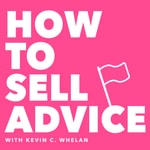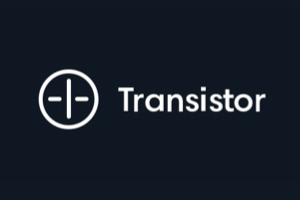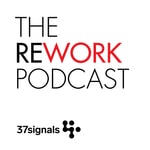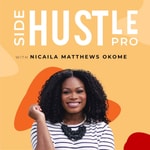How to Sell Advice – Details, episodes & analysis
Podcast details
Technical and general information from the podcast's RSS feed.

How to Sell Advice
Kevin C. Whelan
Frequency: 1 episode/8d. Total Eps: 202

Recent rankings
Latest chart positions across Apple Podcasts and Spotify rankings.
Apple Podcasts
🇩🇪 Germany - marketing
25/07/2025#69🇨🇦 Canada - marketing
20/07/2025#83🇫🇷 France - marketing
22/04/2025#82🇫🇷 France - marketing
21/04/2025#61🇬🇧 Great Britain - marketing
07/03/2025#93🇩🇪 Germany - marketing
04/11/2024#84🇬🇧 Great Britain - marketing
10/10/2024#90🇬🇧 Great Britain - marketing
09/10/2024#42🇬🇧 Great Britain - marketing
08/10/2024#85
Spotify
No recent rankings available
Shared links between episodes and podcasts
Links found in episode descriptions and other podcasts that share them.
See all- https://jonathanstark.com/
399 shares
- https://www.consultingsuccess.com/
366 shares
- https://buffer.com/
167 shares
- http://patreon.com/
368 shares
- https://twitter.com/jspector
285 shares
- https://twitter.com/dagorenouf
13 shares
- https://twitter.com/kevanlee
5 shares
RSS feed quality and score
Technical evaluation of the podcast's RSS feed quality and structure.
See allScore global : 43%
Publication history
Monthly episode publishing history over the past years.
209. Going from employee to consultant with Reza Saeedi
vendredi 1 mars 2024 • Duration 01:03:21
I recently interviewed Reza Saeedi—a marketing strategist and former Director of Marketing at On Deck—about his transition from employee to marketing advisor to employee again with advising as a side venture.
In this episode, we chatted about things like:
- How Reza got into marketing and eventually, as a mentor/advisor to entrepreneurs
- How he was able to get one fractional CMO and two advisory clients quickly after leaving his job at On Deck
- The role of casual networking and how it led to unexpected opportunities down the line
- The difference between being specific and niching down in business based on your strengths and interests
- The role of risk-reversing guarantees and discussing prices against value during sales conversations
- Why turning away poor-fit clients helped with his overall confidence and contributed to his early success
- How to internally handle the fact we can’t guarantee successful outcomes
- The value of factoring in word of mouth and referrals into your marketing plan
- The intersection and overlap between teaching and advisory work
- How Reza plans to do part-time advising in a low-labour, sustainable way
- How Reza stays productize and organized in his work
- The importance of exercise, habits, and mental health optimization
Plus many fun tangents along the way!
Whether you currently have a job and are thinking about advising full or part-time, or you’re already independent but looking to get into advisory work, this episode will have a ton of insights to offer you.
Key links and mentioned resources:
- Reza on LinkedIn
- Reza's personal site
- Reza on X.com
- Passage.com
- Episode 200: Kevan Lee on part-time advisory work, mentorship, equity compensation, and more
- The Win Without Pitching Manifesto (Book)
- Meditations by Marcus Aurelius
- 4,000 Weeks by Robert Bosman
- Readwise App
208. My content publishing and distribution framework
vendredi 12 janvier 2024 • Duration 17:20
So, you want to publish content to attract clients.
Do you start a blog? Hammer out posts on LinkedIn every day? Start a YouTube channel? A podcast?
Good question. I get asked it a lot.
In fact, someone in Mindshare asked me about it again today, so I thought I'd break out my mental model for how I think about publishing and distributing content.
Here is a visual breakdown to look at while you listen to the latest How to Sell Advice podcast episode:
200. Kevan Lee on part-time advisory work, mentorship, equity compensation, and more
vendredi 7 octobre 2022 • Duration 54:00
I recently interviewed Kevan Lee, the former VP of Marketing at Buffer and currently Senior VP of Marketing at Oyster.
Kevan is a wealth of knowledge when it comes to leading tech startups to significant growth. To give you an example, he helped Buffer go from $5m to $20m in annual revenue and 100,000 new customers acquisitions per month.
In his first year at Oyster, he helped the company 20x its revenue and build a marketing team comprising over 50 people. He's also involved as an educator and advisor with Reforge, On Deck, as well as a past contributor to ProductLed, and more.
In this interview, Kevan and I explore the realm of advisory work.
We cover topics like:
- How he approaches advisory work while having a full-time gig
- How he views mentorship and why it's important to him
- How he prices his advice—and what he's learning in the process
- His experience on the buyer side of equity for advice compensation discussions
- How he packages his ideas into a playbook that he shares with paying Substack subscribers
- And a lot more...
This conversation was a fun exploration of the world of advisory work. And like all of us, Kevan is still figuring out what works best for him.
You can follow Kevan on Twitter at @kevanlee and subscribe to his Substack at kevanlee.substack.com.
Give this a listen and subscribe to get more interviews like this in the future.
—k
109. The benefits of writing and publishing daily
lundi 8 mars 2021 • Duration 11:05
> Click here to join the conversation on this episode in the Mindshare community.
Have you ever considered writing a daily blog?
In this episode, I break down some of the main reasons why I do it (and have done for 120 days in a row so far on kevin.me) and why you might consider doing so, too.
Some of the main reasons include:
- Clarifying your ideas to make them better
- Creating a body of work that becomes interconnected on your blog
- Building credibility by sharing your expertise
- Increasing surface area and marketing gravity
- Creates the building blocks for your Methodology
- It makes you more "remarkable" and rare
There are many more reasons to write daily. If you're going to do it, be sure to keep things short and sweet. Otherwise it will burn you and your readers out.
If you're up for a daily writing channel, let me know and I'll open a private section in this group for daily motivation and feedback.
Cheers!
—k
108. What to do when a client needs results ASAP
vendredi 5 mars 2021 • Duration 07:25
> Click here to join the conversation on this episode in the Mindshare community.
What do you do when your client needs results ASAP?
Or when you have a prospect who has no momentum with their marketing program but expects big things in year one?
In this episode, I talk about setting expectations around the speed marketing should work at.
I talk about what clients to say no to and when to educate them on the big picture.
I also touch on how your job is to build a marketing system for your clients using your methodology. And that takes time.
Give this a listen and let me know what you think!
—k
107. How to help your clients hire a marketing manager
mercredi 3 mars 2021 • Duration 14:39
> Click here to join the conversation on this episode in the Mindshare community.
If you're in a marketing strategy/advisory role, you'll inevitably be called to ask to help hire someone in-house, whether it be a marketing manager, content person, or something else.
Here's my general approach for helping clients find the right candidate.
- Provide a sample job description
- Ideally, you have a template you can use. Otherwise, you can find a few similar job descriptions in the wild and send it to them to prepare a draft.
- Explain the few things that matter most for the position
- Written communication skills
- Attention to detail
- Similar experience
- Publish jobs on Indeed and LinkedIn
- Ask them to create a short list of resumes to review together and reduce down to a small handful to interview
- Once they've interviewed people, see who they feel is the best fit
- Suggest doing a paid trial project or period
- Project manager - two week paid trial
- Markeitng manager - audit the marketing and suggest ways you'd seek to improve things
- Writer - give them a brief, get them to audit the current content marketing and propose ideas, create a draft article + social media posts for them
The key part of all of this is the trial. I've seen a lot of people who look good on paper and end up being terrible hires.
The thing is, you never know who's going to be good until you work with them. Get them to do either a trial project or work for two weeks and see if it's a mutual fit.
Hire right, not twice!
Have you hired before and done things differently? Any insight to share? Let me know in the comments below!
—k
106. How to know when to drop your prices (or not)
vendredi 26 février 2021 • Duration 05:53
> Click here to join the conversation on this episode in the Mindshare community.
Last episode, I talked about how I changed the price and scope up and down for a few different clients recently.
One thing I didn't get into is when to drop your price and when not to drop your price.
There's a few situation when I might drop the price:
- When the scope changes significnatly
- When the value changes significantly (at which time I try to change scope, too)
- When you have a great client who has given you lots of profitable work in the past, they're easy to work with, and it feels like the right thing to do
I never drop my clients to new prospects who simply ask for a straight discount (red flag), nor do I drop my prices for clients who are not living up to their end of the bargain on the implementation side of things (which impacts value).
At the end of the day, like I wrote about yesterday, you don't want to be the cheap consultant. You want to be the best consultant for people who need and value your work the most.
Otherwise you'll be spread too thin and won't be able to do the necessary groundwork needed to get them actual results.
Do you drop your prices in any other situations? Hit reply and let me know!
—k
105. How to change your prices with current clients
mercredi 24 février 2021 • Duration 15:02
> Click here to join the conversation on this episode in the Mindshare community.
There comes a time when you need to change prices with your current clients.
For me, it happens a lot when I work with them for a long time. The value changes over time.
And that's the key part here: value.
In most cases, I find new ways to create value instead of reducing my rates. I ask questions about goals and needs.
But in many cases still, the value decreases once I get all the hard parts of the systems and strategies in place. And with that, it makes sense to have the talk.
I try to check in with my clients often, but especially when I intuit that either I'm doing way too much or not providing a clear enough value equation for them.
If you're not sure, the best thing to do is ask what the goals are and the impact of those goals will be so you can continue making a business case for the work you'e doing.
I like to pre-empt these conversations as much as possible and suggest new rates or new scopes proactively whenever possible.
The last thing you want to do is be stuck doing too much work or not feeling like you're adding enough value for your clients. When that happens, it's better to air your thoughts and make proactive adjustments to keep your work aligned with their needs and goals.
Ultimately, doing this means taking a long-term view. It's about them, not you. And when you put your clients first, you always get the most mutual value out of the relationship.
Listen in for some more context and a few specific examples of changes I've made this month.
—k
104. How to keep an active waiting list when you are fully booked
lundi 22 février 2021 • Duration 10:25
> Click here to join the conversation on this episode in the Mindshare community.
Are you fully booked? When it happens, what do you do?
Do you refer work away or put clients on a waiting list?
Mark had a great question last week:
Any advice on managing prospects when you're at full capacity? What's a good strategy to keep a customer in your pipeline. Ideally, they're willing to wait until you can take them on.
The answer is bigger than simply having a waiting list or not.
In this episode, I talk about things like:
- How limited availability helps create scarcity and therefore higher rates
- How serving a niche market can help you create group programs and training products that serve as temporary solutions while they wait
- Why it might be time to raise your rates if you're in high demand (you can always change them back later)
- Why it might be time too say goodbye to old, non-ideal, lower-fee clients might not be
- When to use one-off or recurring strategy calls to get the client started while they wait for your full attention
- When to consider doing a one-time project (higher fees) as time permits to kick things off while they wait for your ongoing support
- How to start trying to create more leverage to help more people down the road
At the end of the day, how well you're positioned will determine whether you're interchangeable or whether you can command a waiting list when you get busy. By having a niche focus and rare specializations, you can create that waiting list demand as well as develop training, education, and group programs to continue creating more leverage around your knowledge.
Good positioning is the lever that makes the rest of your business more profitable and impactful. Keep going!
Hope this helps!
-k
P.S. Got a question you'd like an audio response to? Leave it in the Ask a Question channel and I'll add you to the queue!
103. How to sell your system—not your process
mardi 16 février 2021 • Duration 07:02
> Click here to join the conversation on this episode in the Mindshare community.
Do you find yourself selling the way you work instead of what the client gets at the end of it?
As marketers, we have a tendency to describe and sell our approach to solving client challenges, not necessarily the systems they'll use to run things later on.
And as important as that I, most people care less about how you approach your work and more about how their marketing program will be different after you're gone.
That's the transformation you're selling as a marketing consultant: it's a new way of doing things that helps get predictable results.
That's the asset they're buying.
In this episode, I'll explore the nuances and explain in more detail what that means.
-kw









